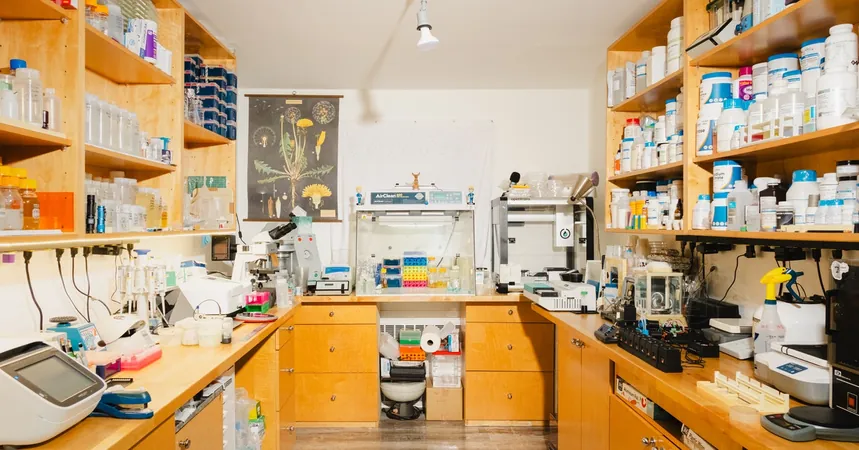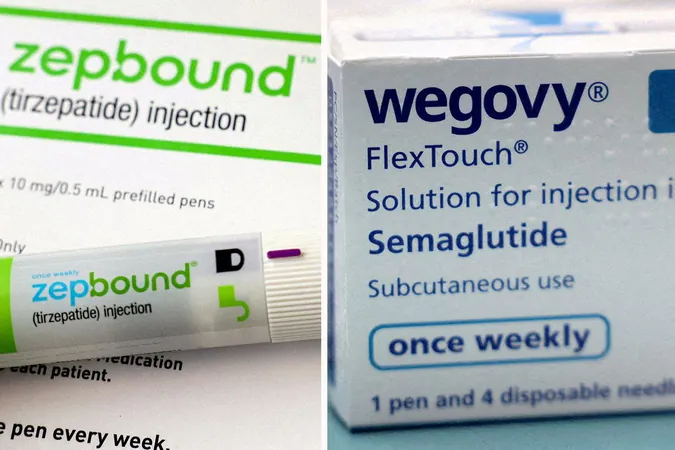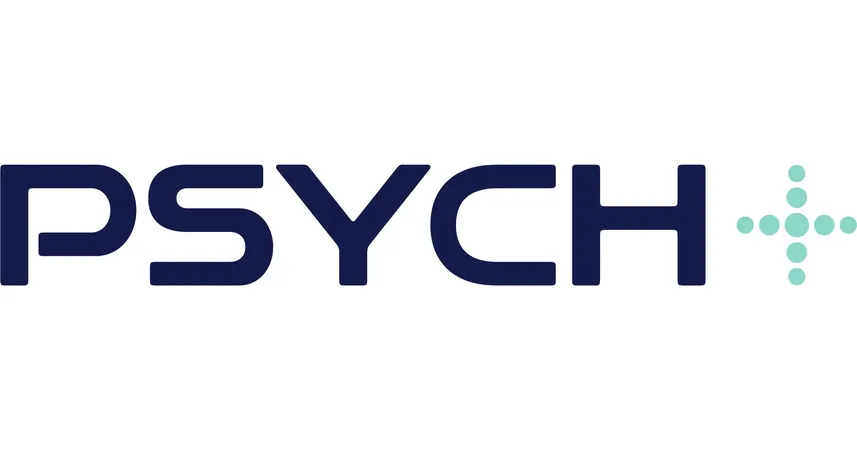
Meet the Plant Hacker Transforming the Floral World: What’s Next in Gene-Editing?
2024-12-09
Author: Wei
Meet the Plant Hacker Transforming the Floral World: What’s Next in Gene-Editing?
Sebastian Cocioba, a visionary plant biologist, operates out of an unassuming clapboard house on Long Island, which appears to be a far cry from a sophisticated research lab. Step inside, however, and you'll find a cramped workshop brimming with innovative equipment sourced from eBay and cobbled together with Cocioba’s engineering ingenuity. This 34-year-old is on a quest to use gene-editing techniques to craft flowers that could surpass any in terms of beauty and fragrance, simultaneously aiming to democratize the enigmatic field of genetic engineering.
A Journey into the Plant Kingdom
Cocioba’s journey into the plant kingdom began in his childhood, ignited by the beauty of a fallen maple leaf. As a teenager, he stumbled upon a dumpster filled with discarded orchids outside a Home Depot. Taking a chance, he rescued these plants—his mother's favorite flowers—and brought them back to life using a growth hormone he purchased online. What followed was a small entrepreneurial venture, selling rejuvenated orchids back to the store. “I had a little operation going where I transformed their trash into profit,” he recalls.
Fueling Passion and Education
This early venture not only fueled his passion but also financed his education, allowing him to attend Stony Brook University for biology. Although financial challenges forced him to leave school, he gained invaluable experience working with a frugal plant biology group that employed makeshift methods for experimentation. Armed with a tube of agrobacterium—a crucial microbe for gene editing—he embarked on a journey to turn his cramped hallway into a fully-functional lab.
Creative Resourcefulness
Creative resourcefulness soon became Cocioba's hallmark. He turned a profit by purchasing lab equipment from shutting down facilities and reselling it for a markup. Over time, he mastered the art of 3D printing to create essential laboratory tools at a fraction of the retail price; items such as a light box for DNA visualization could be fashioned from inexpensive materials. “Having a 3D printer has been a game changer for me,” he says, showcasing the power of technology in the modern world of biotechnology.
The Willy Wonka of Flowers
Cocioba describes his ambition as wanting to be "the Willy Wonka of flowers," minus the negative elements of Roald Dahl's infamous character. His work in the United States, where genetically engineered flowers are classified under lenient biosafety guidelines, allows him to experiment without heavy regulations that would stifle progress found in countries like the UK or EU.
Collaborations and Innovations
His services as a self-described “pipette for hire” led him to collaborate with various startups, including a project linked to the Tokyo 2020 Olympics. He was asked to design a morning glory that resembled the Olympics’ blue-and-white checkerboard motif, but the plan fell through due to the complexities of the genetics involved and the fast-approaching deadline.
Fostering an Accessible Scientific Community
As Cocioba delved into synthetic biology more seriously, he expanded his vision from merely creating unique plants to fostering a more accessible scientific community. He began documenting his experiments in an open online notebook available for anyone interested in exploring plant genetics. Moreover, he started selling plasmids—the DNA circles he utilizes for plant transformations—thus breaking down barriers for aspiring biologists.
A Golden Age of Biotech
"We are undoubtedly in the golden age of biotech," he asserts, noting the increased accessibility of knowledge and resources. His inspiration stems from the amateur plant breeders of the 19th century, who shared their discoveries not for profit but out of sheer love for botany: “You don’t need to be a professional scientist to engage in scientific exploration,” he emphasizes.
Engaging with Senseory Plants
Currently, Cocioba works as a project scientist at Senseory Plants, a forward-thinking startup based in California that focuses on engineering indoor plants with distinctive aromas—offering a biological alternative to traditional candles and incense. One of his exciting concepts involves crafting a plant that emits the scent of old books, transforming spaces into atmospheric libraries. “What they’re doing is incredibly inspiring,” he shares, reflecting his passion for innovative projects rooted in the natural world.
A Testament of Creativity and Determination
Cocioba’s journey stands as a testament to how creativity, determination, and a dash of entrepreneurial spirit can reshape fields once reserved for the academic elite. The flowers of tomorrow, kissed by his hands, are not just blossoms—they are symbols of a new scientific renaissance, opening doors to possibilities previously deemed unreachable.



 Brasil (PT)
Brasil (PT)
 Canada (EN)
Canada (EN)
 Chile (ES)
Chile (ES)
 España (ES)
España (ES)
 France (FR)
France (FR)
 Hong Kong (EN)
Hong Kong (EN)
 Italia (IT)
Italia (IT)
 日本 (JA)
日本 (JA)
 Magyarország (HU)
Magyarország (HU)
 Norge (NO)
Norge (NO)
 Polska (PL)
Polska (PL)
 Schweiz (DE)
Schweiz (DE)
 Singapore (EN)
Singapore (EN)
 Sverige (SV)
Sverige (SV)
 Suomi (FI)
Suomi (FI)
 Türkiye (TR)
Türkiye (TR)